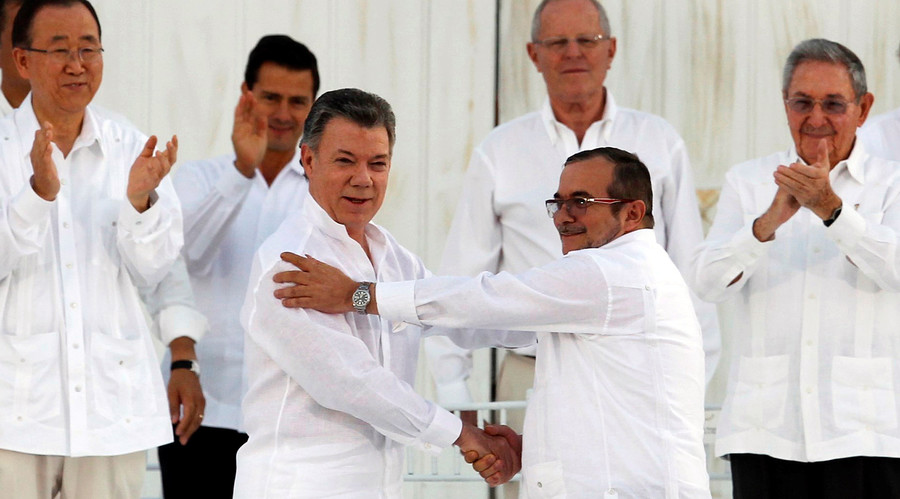Santos received the prestigious prize for securing a peace accord with FARC rebels, the Revolutionary Armed Forces of Colombia, back in September after nearly four years of negotiations.
It had to be ratified by the people of Colombia in a referendum in order to come into force.
Polls ahead of the vote suggested the deal to have public approval, with the peace deal also backed by a great number of politicians in Colombia and abroad, including UN Secretary General Ban Ki-moon.
However, in a dramatic turn of events, Colombians rejected the deal, with 50.2% voting against it.
The main obstacle appeared to be anger over amnesty for former militants, which is part of the proposed deal.
After the referendum, President Santos said he would not cease efforts to bring the deal to life, promising to “begin discussions as soon as possible addressing all the necessary issues to have an agreement and realize the dream of every Colombian to end the war with the FARC.”
The Norwegian Nobel Committee said the award is “a tribute to the Colombian people who, despite great hardships and abuses, have not given up hope of a just peace, and to all the parties who have contributed to the peace process.”
The Committee did not, however, mention Santos’ counterpart in the peace negotiations, FARC leader Timoleon Jimenez, whose real name is Rodrigo Londono.
The Colombian conflict, which is the longest in the history of Latin America, claimed over 220,000 lives, most of them civilians, since FARC rebels first declared war on the government in 1964, according to a report by Colombia’s National Centre of Historical Memory.
